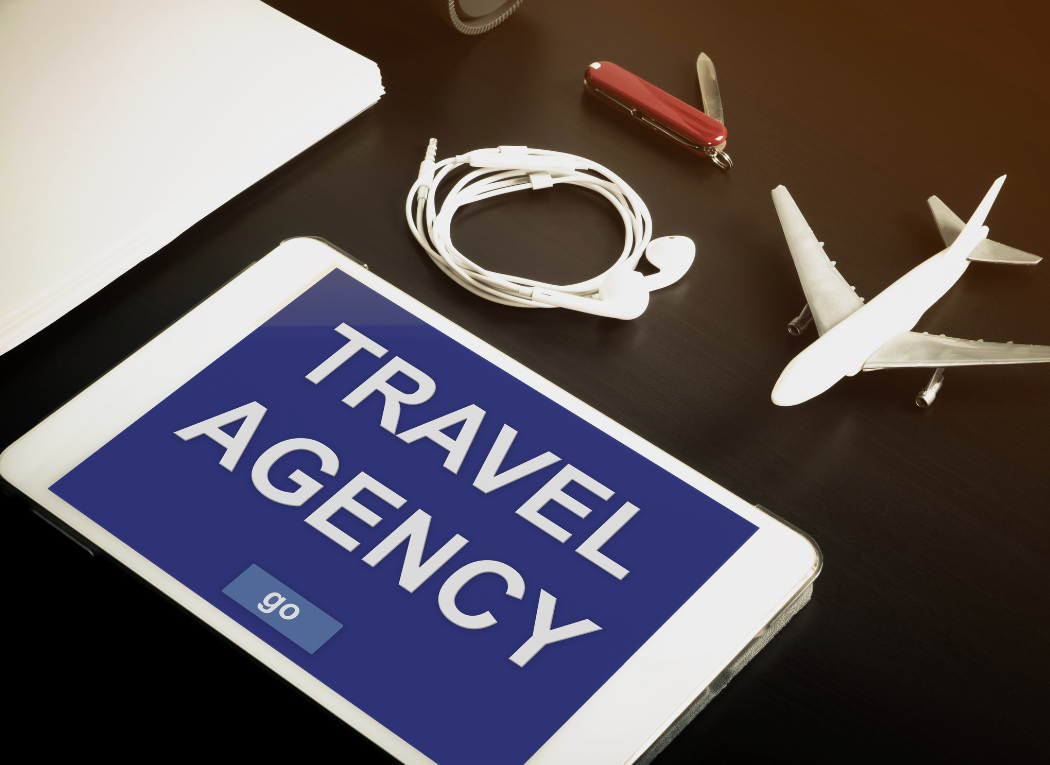Picture this – you’ve been dreaming of exploring the stunning landscapes and vibrant cities of the United Arab Emirates. The anticipation builds as you plan your trip, only to have your dreams shattered by a travel ban. Suddenly, your passport becomes nothing more than a painful reminder of missed opportunities. In this blog we will discuss about How to Remove Travel Ban in UAE.
But fear not! In this comprehensive guide, we will unravel the mystery behind travel bans in the UAE. We provide you with practical steps to navigate through this roadblock. Whether it’s due to unpaid debts or legal issues, we’ll show you. How to unlock that gateway to freedom and reclaim your right to roam.
So fasten your seatbelt, grab a pen and paper (or open up that notes app on your phone). Because we’re about to embark on an adventure towards lifting that pesky travel ban once and for all. Let’s get started!
Understanding the Travel Ban in UAE
The United Arab Emirates is known for its modern cities and luxurious lifestyle. Has certain regulations in place to maintain order and protect its residents. One such regulation is the travel ban, an unfortunate reality that can be imposed on individuals for various reasons.
It’s important to note that a travel ban can affect both residents and visitors alike. So whether you’re an expatriate working in Dubai or simply planning a vacation to Abu Dhabi. It’s crucial to have a clear understanding of this concept.
When faced with a travel ban situation, it’s easy to feel overwhelmed and uncertain about what steps need to be taken next. However, knowledge is power – arming yourself with information about the ban will help you navigate through the process more effectively.
In the following sections of this guide, we’ll delve deeper into why travel bans are imposed. We explore practical steps you can take towards removing them. Remember: understanding the “why” behind your specific case is key. When embarking on this journey towards freedom of movement within and beyond UAE borders.
Reasons for a Travel Ban
Travel bans in the UAE can be imposed for various reasons. It is important to understand them to navigate the process of having them lifted. One common reason for a travel ban is unpaid debt. If an individual fails to repay their debts or loans. Their passport may be confiscated, preventing them from leaving the country.
Another reason for a travel ban could be legal issues or pending court cases. If someone is involved in criminal proceedings or has outstanding fines, they may face restrictions on their ability to travel until these matters are resolved.
Additionally, individuals who have violated immigration laws or overstayed their visa may also face a travel ban as part of the consequences for such actions.
It’s worth noting that not all travel bans are permanent; some may have specific timeframes attached to them. However, regardless of the duration, it is crucial to take steps towards resolving any underlying issues that caused the ban in order to have it removed.
In some cases where there is uncertainty about why a travel ban was imposed, seeking legal advice can provide clarity and guidance on how best to proceed.
Remember that each situation is unique and requires careful consideration of individual circumstances before taking action towards removing a travel ban. It’s essential to consult with professionals who specialize in this area and follow proper procedures accordingly.
Steps to Remove a Travel Ban
If you find yourself facing a travel ban in the UAE, it’s important to take the necessary steps to have it lifted. Here are some key actions you can take:
1. Understand the reason for the ban: The first step is to determine why you were banned from travelling. This could be due to outstanding debts, legal issues, or immigration concerns. Understanding the reason will help guide your next course of action.
2. Seek legal advice: It’s highly recommended to consult with an experienced lawyer who specializes in handling travel ban cases. They will assist you in navigating through the process and provide expert guidance on how best to proceed.
3. Gather relevant documents: Collect all necessary documents such as identification papers, financial records, and any other supporting evidence that may help prove your case or mitigate the reasons behind the ban.
4. Resolve outstanding issues: Work towards resolving any outstanding matters that led to the travel ban. This could involve clearing debts, settling legal disputes, or addressing immigration concerns.
5. Communicate with authorities: Reach out directly to relevant government entities such as law enforcement agencies or immigration offices responsible for imposing and enforcing travel bans. Present your case and provide any requested documentation promptly and accurately.
Remember that each case is unique, and there may be additional requirements depending on your specific circumstances. Seeking professional advice throughout this process is crucial for a successful outcome.
Documents Required for Lifting a Travel Ban
When it comes to lifting a travel ban in the UAE, there are certain documents that you need to have in order. These documents are essential and play a crucial role in proving your eligibility to have the ban removed.
1. Valid Passport: Your passport should be valid at least six months from the date of your intended travel. Make sure that all information on your passport is accurate and up-to-date.
2. Emirates ID: A valid Emirates ID is necessary as it serves as an important identification document in the UAE. Ensure that your Emirates ID is not expired or about to expire soon.
3. Court Order or Settlement: If you were issued a travel ban by the court, you will need to provide appropriate legal documentation such as a court order or settlement agreement stating that the ban has been lifted.
4. No Objection Certificate (NOC): In some cases, obtaining an NOC from relevant authorities may be required, especially if you had defaulted on loans or financial obligations.
5. Proof of Residence: Providing proof of residence such as utility bills or rental agreements can help establish your ties to the country and demonstrate that you are not planning on leaving permanently.
It’s worth noting that these requirements may vary depending on individual circumstances and reasons for imposing the travel ban. It’s recommended to consult with legal professionals who specialize in immigration matters for personalized advice tailored specifically to your situation.
Alternative Options for Traveling During a Ban
Travel bans can be frustrating and inconvenient, especially when you have important plans or obligations. However, there are alternative options available to you if you find yourself facing a travel ban in the UAE.
1. Explore Virtual Travel: While it may not be the same as physically being there, virtual travel experiences can provide a temporary escape from your current situation. Many museums, landmarks, and tourist attractions offer virtual tours that allow you to explore their wonders from the comfort of your own home.
2. Plan Local Getaways: Just because you can’t leave the country doesn’t mean you can’t enjoy a change of scenery within the UAE itself. Take advantage of local destinations and plan weekend getaways or staycations at nearby hotels or resorts.
3. Focus on Personal Development: Use this time to invest in personal growth and development. Enroll in online courses or workshops related to your interests or professional goals. This way, even if your physical travels are restricted, you can still expand your knowledge and skills.
4. Connect with Loved Ones Abroad: If you’re unable to visit friends or family members living abroad due to a travel ban, make use of technology to stay connected with them virtually. Schedule regular video calls or participate in online activities together so that distance doesn’t hinder your relationships.
5. Keep Up with Travel News: Stay informed about any updates regarding travel restrictions and bans in the UAE through reliable sources such as government websites or trusted news outlets. Understanding the latest developments will help you plan accordingly for future trips once the ban is lifted.
Remember that these alternative options serve as temporary solutions during a travel ban but cannot replace the joy of exploring new places firsthand!
Important Things to Keep in Mind
1. Stay updated with the latest regulations: The travel ban policies and procedures may change over time, so it’s crucial to stay informed about any updates from the UAE government or relevant authorities. Check official websites or consult with a legal professional for accurate information.
2. Address any outstanding issues: If your travel ban is due to unresolved legal matters, such as pending court cases or unpaid debts, it is essential to address these issues promptly. Seek legal advice on how to resolve them efficiently and effectively.
3. Maintain open communication: It’s essential to maintain open lines of communication with the relevant authorities and keep them informed about any progress made in resolving the underlying issues leading to the travel ban. This can help demonstrate your commitment towards resolving matters responsibly.
4. Gather necessary evidence/documentation: Depending on the reason behind your travel ban, you may need specific documents or evidence to support your case for lifting the ban. Ensure that you have all required paperwork ready and organized before approaching relevant authorities.
5. Seek professional assistance if needed: Dealing with a travel ban can be complex and overwhelming, especially when legal matters are involved. Consider seeking professional assistance from lawyers experienced in handling such cases who can guide you through the process effectively.
6. Be patient but persistent: Resolving a travel ban takes time, so it’s important not to lose hope but remain patient throughout the process while actively pursuing its removal diligently.
Remember that each case is unique, so it’s advised not to solely rely on general information found online but to seek personalized guidance tailored specifically to your situation from professionals specializing in UAE immigration laws and regulations
Conclusion
Removing a travel ban in the UAE can be a complex and challenging process, but it is not impossible. By understanding the reasons for the ban, following the necessary steps, and providing the required documents, individuals may be able to have their travel bans lifted. However, it’s important to note that each case is unique, and results may vary.
If you find yourself facing a travel ban in the UAE, it’s essential to seek legal advice and guidance from professionals who specialize in this area. They will provide personalized assistance based on your specific circumstances.
In some cases where lifting the ban proves difficult or time-consuming, there are alternative options available for those seeking to travel during this period. Exploring these alternatives can help mitigate any inconveniences caused by the travel ban.
Remember that patience is key throughout this process as it may take time for authorities to review your case thoroughly. It’s crucial not to lose hope and maintain open communication with relevant government agencies or legal representatives.
While we have provided an overview of how to remove a travel ban in the UAE, always consult official sources such as government websites or legal experts for up-to-date information regarding procedures and requirements.
Travel bans can undoubtedly disrupt one’s plans and cause stress; however, with proper knowledge and guidance from professionals who understand local laws and regulations well, individuals can navigate through this challenging situation successfully.
We hope that this article has shed some light on how to remove a travel ban in the UAE effectively. Remember that diligence and persistence are vital when dealing with legal matters like these.





